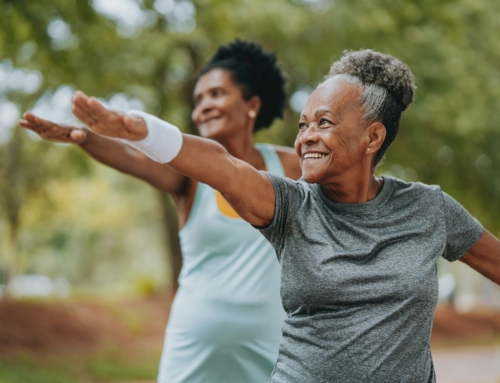When two people develop an intimate bond and relationship with each other, the road before them isn’t always paved smoothly. There are challenges in any relationship, and even when the couple love each other deeply, without skills to help them navigate those difficulties, they may not thrive. Whether or not you and your partner are going through a difficult season, couples counseling can help to strengthen your relationship.
Couples counseling explained
 A simple way to understand the nature of couples counseling is to think of it as a specific type of therapy that addresses romantic relationships and their dynamics. Romantic relationships have much in common with other relationships, but they also have unique dynamics. Couples counseling helps a couple by addressing the varied aspects of the relationship with the aim of improving it.
A simple way to understand the nature of couples counseling is to think of it as a specific type of therapy that addresses romantic relationships and their dynamics. Romantic relationships have much in common with other relationships, but they also have unique dynamics. Couples counseling helps a couple by addressing the varied aspects of the relationship with the aim of improving it.
Couples can meet with a counselor online or in person by themselves, or they can go to group therapy where other couples will be present. The trained counselor helps guide the group toward meaningful resolution of any common issues. The couple will generally meet with their counselor at least once a week for an hour or so, and for several weeks or more depending on the complexity of the issues being addressed.
Couples counseling works best when both people in the relationship participate willingly and intentionally in the process. Buy-in from your partner makes a difference. If, for any reason, your partner is reluctant to be involved with couples counseling, it’s possible to attend counseling alone to work on yourself, to develop a keener insight into your relationship, and to nurture the skills to improve that relationship.
Moving forward together toward couples counseling will also include choosing with the counselor who will support your process. Different counselors will have varying styles and therapeutic methods they bring to bear in a given situation. Choose a counselor or therapist you and your partner both feel comfortable working with and find a time that will work for you to attend the sessions.
The benefits of couples counseling
As you think about whether or not to go for couples counseling, it’s important to consider all the benefits of it. Understanding these benefits can help you set healthy expectations as well as make an informed decision about what couples counseling can do for you and your relationship. Some of the benefits of couples counseling include:
Having a trained and impartial sounding board
When you go for counseling, the person helping you is a trained professional who will listen to you both and give honest, unbiased feedback. A third party who is not invested in the situation can give you both a new perspective and they might see things that you do not.
Develop greater self-awareness
Couples counseling will draw you toward exploration of your own thoughts, feelings, and needs. Counseling can also help you see patterns of behavior in your life and help you think through whether those patterns are helpful or not. You will develop better self-understanding.
Having a safe and non-judgmental space to explore issues together
Amid conflict, it is easy to feel threatened and to struggle to be candid with one another. Couples counseling affords you a safe space that your counselor fosters to ensure that it feels safe for you both to be honest and vulnerable with each other. This allows you to explore the issues openly to arrive at meaningful resolutions.
Resolving longstanding issues and roadblocks
Every relationship has its sticking points and issues that the couple may be struggling to find resolution over. It could be how to deal with the in-laws, dividing responsibilities in the home, sexual intimacy, or whether to have kids. Counseling can help you frame these issues well, and even unearth and address the underlying issues fueling these concerns.
Gaining a deeper understanding of your relationship
Talking about your relationship with someone else can help you uncover patterns of communication, common issues that cause problems, how you handle conflict situations, the coping mechanisms you use to deal with hard things, and much else. These insights can help you understand your relationship better and figure out how to better love each other.
Deeper insight and mutual understanding
Couples counseling can help you really slow down and see things from your partner’s perspective.
 Nurture and restore trust
Nurture and restore trust
Issues such as infidelity, dishonesty, or unmet expectations can lead to a loss of trust. Couples counseling can be a safe space to understand how that trust was broken, what effect that had, and how best to repair things. Trust can be rebuilt, and the couple can reconfigure their relationship in new ways that promote their well-being as a couple.
Improve communication and conflict resolution skills
Part of what your counselor will help with is taking you through exercises designed to help you become better communicators. You will also learn how best to resolve conflict when it arises. It is important for couples to learn how to express difficult emotions and articulate their needs without resorting to blame, shaming, or attacking one another.
Deepen connection and intimacy
Taking time to understand and then move toward your partner’s needs will help a couple deepen their sense of connection. It will also serve to improve your ability to understand each other so that you can better meet each other’s needs. You can nurture your friendship and the bonds between you.
Identify dysfunctional behavior
The counseling process also identifies unhealthy ways of relating to each other and then assists the couple in catching these unhealthy approaches and choosing an approach that better supports more effective interactions. In addition to identifying behaviors that are dysfunctional, couples counseling can also help a couple identify the external stressors that may cause conflict in their relationship.
Identifying and clarifying feelings about the relationship
A relationship can be anything but straightforward. Sometimes you need time and space to work out your true feelings and thoughts about the relationship you’re in. Counseling can help you identify what you want from the relationship. This is an important part of a couple’s decision-making process.
Resolve issues before they become bigger problems
Your counselor can help you and your partner identify current issues as well as potential issues that need to be resolved before they begin affecting the relationship. Couples counseling can provide you with space to bring up issues that you may otherwise struggle to bring up for fear of offending or because you don’t have the language to articulate properly.
Moving toward couples counseling
 Couples counseling can be of benefit to the couple, even if the couple are doing well and don’t have any particular issues that require resolution. Couples counseling, by virtue of how it works, equips a person with the tools they need to resolve conflict and overcome hardship in the long-term. Skills like being able to communicate well and manage conflict translate to other situations beyond the couple’s relationship, too.
Couples counseling can be of benefit to the couple, even if the couple are doing well and don’t have any particular issues that require resolution. Couples counseling, by virtue of how it works, equips a person with the tools they need to resolve conflict and overcome hardship in the long-term. Skills like being able to communicate well and manage conflict translate to other situations beyond the couple’s relationship, too.
As you consider your situation, there may be issues and concerns that are negatively affecting your relationship. If you arrive at a place where you feel that couples counseling could benefit your relationship, talk with your partner about it. It’s optimal if you and your partner both go for counseling and are both invested in the process. You can explain the importance of counseling, and why it matters for the health of your relationship.
Your counselor will work with you to understand your unique story and the needs you have. Together with your counselor, you’ll set goals for your time together and use the sessions to work toward them. To strengthen your bond and address issues of concern in your relationship, consider reaching out and speaking with a counselor.
Contact our office today and we will connect you to a qualified professional that will walk you through this journey.
“Purple Flowers”, Courtesy of stanbalik, Pixabay.com, CC0 License; “Rings”, Courtesy of Pexels, Pixabay.com, CC0 License; “Hugging”, Courtesy of StockSnap, Pexels.com, CC0 License; “Stubborn”, Courtesy of Tumisu, Pexels.com, CC0 License












